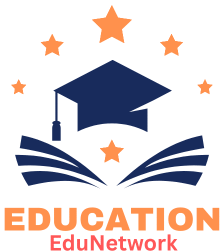There is a growing need for educational consultants in today’s complex academic climate. As more and more schools, parents, and students look for expert advice, there is a growing need for qualified educational consultants. Educators, whether they are seasoned pros looking to switch gears or fresh grads keen on academic preparation, have a lot of options when it comes to educational consulting.
This article will discuss educational consulting jobs, including what is needed, potential career paths, salary expectations, and how to enter this growing field.
How Do Educational Consultant Positions Work?
Academic improvement strategies, college admissions, special education, teacher training, and curriculum development are all part of an educational consultant’s job description, whether they are working with kids, parents, schools, or government agencies. Professionals with expertise in education may work as independent contractors or as part of larger consulting firms.
Two broad types of educational consulting jobs exist:
-
Independent Educational Consultants (IECs) work one-on-one with families to help kids and families with college admission processes, test prep, and academic planning.
-
The primary role of institutional educational consultants is to assist schools and other educational institutions in improving their curriculum, instruction, administration, and student outcomes.
The Role and Responsibilities of Educational Consultants
Educational consultants are multi-talented, depending on their area of expertise. Responsibilities often include:
-
Evaluating and recommending educational initiatives
-
Providing students with guidance on college and university admissions
-
Developing and implementing training and education programs
-
Checking out classrooms and assessing educators
-
Advising on Individualized Education Programs
-
Assisting you in getting ready for standardized exams
-
Providing support for online and distance education initiatives
-
Assisting educational businesses with instructional design
Whether it’s a project-based, full-time, or long-term contract, these consulting positions provide flexibility to people with a range of lifestyles.
Academic Advisory: What Makes It a Good Choice?
A profession in educational consulting is an option for those who are passionate about teaching yet want for more flexibility and variety in their work settings. There are a number of reasons why you should look into educational consulting positions:
-
Adaptability: Many consultants work from home and set their own schedules.
-
Wide-Ranging Audience: This encompasses not just parents and students, but also large educational institutions.
-
Work That Matters: Influence educational policy, student accomplishment, and curricula.
-
Rising Interest: Demand is driven by rising interest in academic achievement and the fierce competition for college admissions.
No matter why you want to leave teaching or change jobs, educational consulting might be a rewarding and successful option.
Criteria for Necessary Abilities
The bulk of educational consulting employment typically need a bachelor’s or master’s degree in education, counseling, or a related field. Also, a Ph.D. or Ed.D. may be more desirable for certain jobs.
Educational advisers must possess certain competences, including:
-
Extensive understanding of several forms of schooling
-
Superb communication and interpersonal skills
-
Being able to think critically and find solutions to issues
-
Skills in managing projects and organizing
-
Familiarity with educational norms and technology
Certifications such as the Certified Educational Planner (CEP) or membership in groups like the Independent Educational Consultants Association (IECA) may boost credibility and open doors to better job prospects.
Classifications of Educational Consulting Jobs
There are several subfields within educational consulting, each of which offers a unique combination of experience, training, and job opportunities. Some examples of popular types of educational consulting roles are:
1. Aid for Entrance to Higher Education
This kind of adviser helps high school students get ready for college admissions by guiding them through the application process, writing essays, conducting interviews, and preparing for standardized tests.
2. Special Education Consultant
Through partnerships with families and schools, these professionals assist children with disabilities. In the realm of special education, they ensure compliance with rules and regulations and provide a hand in developing IEPs.
3. Expert in Curriculum Development
Educational publishers and institutions often hire curriculum consultants to review and develop new pedagogical materials for classroom use to ensure they meet industry standards and best practices.
4. Education Technology Advisory
Experts in educational technology (edtech) focus on finding ways to incorporate technology into classrooms. In this role, they assist schools in choosing and implementing LMSs and other digital tools and apps.
5. Expert in Enhancing Career Potential
Consultants in this field provide administrators and teachers professional development opportunities like seminars, workshops, and coaching sessions with the goal of improving classroom practices and student outcomes.
6. Homeschooling Consultant
More and more families are turning to consultants for assistance with homeschooling-related tasks, such as selecting curricula, developing effective learning programs, and meeting legal requirements.
Job Opportunities in Educational Consulting and Where to Find Them
Educational consulting opportunities may be found in a variety of ways:
-
Online job boards: Sites like Glassdoor, Indeed, and LinkedIn often have postings for educational consultant positions.
-
Platforms for Freelancing: Sites like Upwork and Freelancer provide consultancy tasks that are project-based.
-
Many businesses that cater to students’ academic needs employ consultants either on an as-needed or permanent basis.
-
Consultants are often brought in to help with curriculum development and strategic planning by educational districts and universities.
Networking, joining professional organizations, and going to educational conferences are all great ways to get consulting opportunities.
Salary Expectations for an Educational Consultant
Salaries for educational consulting roles may vary widely depending on factors including years of experience, level of education, and the nature of the consulting work. The following is derived from industry statistics:
-
The starting salary for a consultant may be anything from $40,000 to $60,000.
-
Earnings of $70,000 to $120,000 or more is possible for experienced consultants and independent contractors.
-
Experts in highly sought-after domains, such as education technology or college admissions, might command even higher rates.
-
Freelancers might charge $50 to $250+ per hour, depending on their clients and expertise level.
Instructions for Launching Your Educational Consulting Career
If educational consulting is something you’re interested in, here are some steps to take to begin:
-
Work Your Way Up: If you want to get a head start, get a job in administration or teaching.
-
Pursue Advanced Degrees: A master’s or doctoral degree may boost your credibility.
-
Establish Your Specialty: Concentrate on helping people with special needs, developing curricula, or getting ready for college.
-
Put your skills and experience on display for potential employers by creating a portfolio.
-
Join groups like IECA or NACAC to meet other college admissions counselors and build your network.
-
Put your abilities up for sale on consulting sites or offer your services to local families or schools to launch your freelancing career.
-
Make Yourself Seen Online: A website or blog may do wonders for your reputation and clientele.
Educational Consulting: Overcoming Challenges
Earning a living as an educational consultant may be rewarding, but it’s not without its challenges. One possible set of these is:
-
Expectations from Clients: It could be challenging to meet the needs of a wide range of clients.
-
Because of how rapidly things are evolving in the education sector, it is essential to stay abreast of current trends.
-
Competition: Having unique value propositions is essential for standing out, especially in the college consulting industry.
-
Uncertain Income: Freelancers’ income might fluctuate in the absence of consistent contracts.
But if you’re well-prepared and very excited, you can overcome these challenges.
Educational Consulting Career Opportunities
The future of educational consulting seems bright. As schools face pressure to modernize, improve, and comply with regulations, consultants play an increasingly important role. The expansion of online learning, AI in the classroom, and personalized academic services is also giving rise to new subfields within consulting.
U.S. Bureau of Labor Statistics projections show that teaching jobs will continue to expand, while consulting jobs throughout the globe are also showing signs of expansion. This trend indicates that educational counselors will be in demand for the foreseeable future.
Last Thoughts
Those with a passion for shaping the future of education might find a fulfilling and flexible career path in educational consulting. Whether you’re advising a school district on instructional strategy, training teachers, or helping students get into the school of their dreams, your expertise may have a lasting impact.
Due to rising demand, a wide range of job opportunities, and the ability to work both independently and for corporations, educational consulting is an excellent field to consider for a future career.
